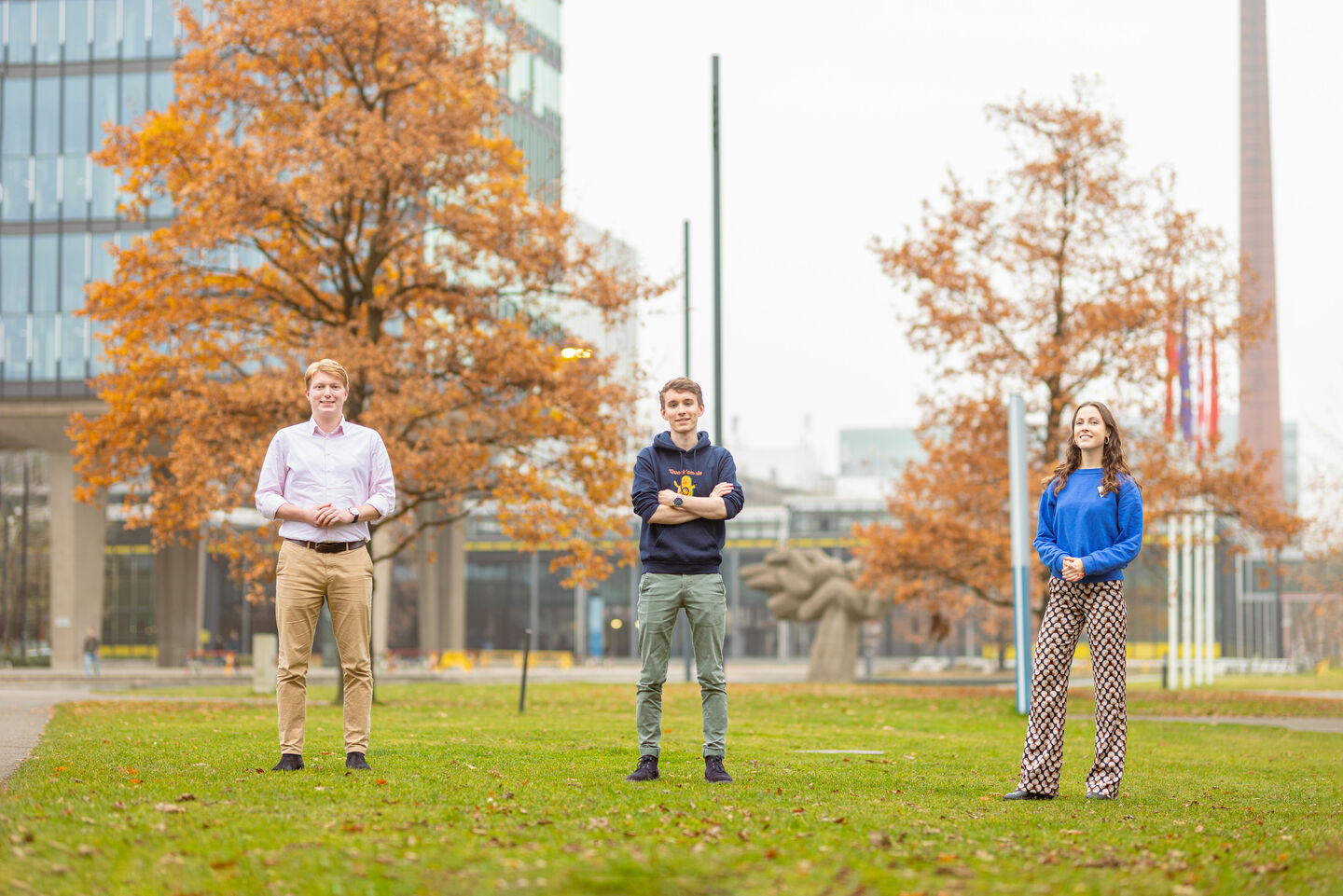
Ten questions for the three lead candidates of the student factions
Rik Lubbers, Koen de Nooij and Maud Kunkels talk more openly than ever before
On Tuesday December 7th and Wednesday December 8th, you will receive a mail inviting you to cast your vote for one of the candidates standing for the three student parties: Groep-één, DAS or the new faction ONS. Before then, you may already have heard their election promises on social media or, with a bit of luck, from their own mouths - from December 2 they'll be canvassing on campus. Is your mind not yet made up? Then you might find the article below helpful. Cursor asked the party leaders questions on topics ranging from their last flurry of tears to drinking a beer with the Executive Board President.
This year sixty-nine students are standing for election to the University Council. Nine of them are representing the new student faction ONS, and Groep-één and DAS each have thirty candidates. All of them are chasing nine seats. Koen de Nooij’s club typically sports some yellow (Groep-één), Maud Kunkels and her fellow party members wear blue (DAS) and Rik Lubbers’ faction has chosen pink (ONS).
1. What can students get you out of bed for?
“To prepare a delicious meal,” says Rik, who is studying Mechanical Engineering, at once. He's imagining duck a l’orange or a stew, but “even if someone needs my help with making onion soup, I'll jump out of bed and chop onions”. Koen also enjoys cooking (his signature dish is chilli con carne), but he would also get out of bed for a good discussion about education or a knotty programming puzzle. Which goes to show that he chose his degree program well. In fact, the master's student of Industrial & Applied Mathematics was commissioner of education at GEWIS. Maud would happily get up for almost any activity organized by and for students. The bar in de sky on the Flux field during Intro was a big hit with her, coincidentally organized by the study association of her department, IE &IS.
2. What was the last Studium Generale program you took?
Koen doesn't just take SG programs, he is organizing one himself. “In collaboration with SG, we are holding a symposium on December 4th in honor of the GEWIS lustrum. It's entitled Endless Possibilities.” The other two recall a documentary that impressed them. Maud saw the personal story of the young climate activist Greta Thunberg and Rik was moved by the film Quo Vadis about Srebrenica. “Yet more confirmation that there are multiple sides to any issue.”
3. Which course or extracurricular activity taught you the most? And what was that?
Rik feels he has learned a great deal from his experiences of debating, at dispuut Tau, for example, or prior to that at the national policy debating championship that was organized by SSRE. “The way in which you have to switch gear to get your ideas across also helps me when I'm working on projects for my degree. While I'm debating, ideas come to me for how to give plans a logical structure, which in turn creates starting points that other people can give their feedback on. This helps in the decision-making process.”
Koen learned most from his board year at GEWIS. “Studying math and computer science automatically means you're really involved in technical stuff; some would even call you a nerd. I wanted to develop my social side in a cool group of people I'd met on my program. Communicating, seeing the bigger picture, taking responsibility; I learned it all in my board year.”
Maud says her activities for DAS are teaching her a lot. “Being actively involved in DAS as a second-year has given me the ability to juggle multiple roles. I now have a job at a high school alongside my studies, I'm doing an internship at a company, I'm part of the DAS campaign team, a board member of the l'Attaque Attique dispuut and, on top of that, I've got my student courses to pass. I've found an appropriate tone of voice for all occasions. “
4. Do you have a solution to the cycle parking problem on the campus?
One question, three very different answers.
Maud would like to see bike sheds with multiple floors. “That saves so much space. I can't see any obvious problem with increasing the height of the sheds. In any case, it is better than having the cycle parking attendants tell you that you have to leave your bike somewhere else.”
Koen believes more bike sheds are needed. “We have to make sure that students come to the campus by bike and not by any less sustainable mode of transport. We've given this a lot of thought in our faction.”
According to Rik, a campus visitor these past seven years, much could be solved with better signage. “It's exactly the same with the printers available in MetaForum. There are more than in the print shop. Just go down to the next floor. The problem isn't the number, it's letting people know they are there.”
5. Which TU/e issue do you believe is more urgent than the bike sheds?
Koen thinks a lot of issues are more important than the parking problem. “Right now, the changes to the Bachelor College top the list. That's a matter that is eventually going to impact all bachelor's students and it has to be done well. It's something I'm spending a lot of time on.”
Maud thinks that student housing and the design and delivery of courses struggling to cope with corona is more important than bike sheds. With DAS, she is investigating how positive aspects of hybrid education can be retained and the municipality of Eindhoven can provide more student rooms.
“For ONS, transparency in the policy process at TU/e is a priority, together with the spearheads student well-being and the spearhead long-term vision,” says Rik. “You can find everything online, but that's not to say that students are aware how decisions are arrived at.” For the rest, ONS is keen to keep on encouraging students to come to the campus to do sport, to eat lunch and for drinks parties, “because that rolls back the social isolation that is really making life difficult for students.”
6. What should we stop doing immediately?
“Stop polluting the campus by parking scooters everywhere,” says Rik off the top of his head. Likewise, it is an issue highlighted as needing attention in the ONS manifesto. “We want this governed by clear rules.”
Maud knows the answer instantly: “Stop filling in what you think other people mean”. She is saying that we need to listen better to each other. “It's really not difficult and it is very important. You can only help someone once you have truly heard what they are saying.”
Koen collects his thoughts. Hesitantly, he says: “I think that the policymakers and administrators should stop talking about students and instead talk with students. And more specifically, I'd say that we should stop imposing requirements on the board grants and reimbursements for student teams. I'm getting signals that this isn't at all good for the well-being of students. I know students with a completely avoidable burnout due to these requirements.”
7. When and why did you last cry or curse or laugh?
Maud cried last week. “In a l'Attaque Attique board meeting I was asked how I was doing. I'd had a very busy week and suddenly realized that I'm missing my parents and two younger sisters. Social relationships are very important to me and I realized that I mustn't forget to make time for them. I've set some dates to see them now.”
Last week Koen was also sad. This was because his grandfather's funeral service was held last week. He cried, but was fortunately also able to recall happy memories.
Rik talks about the last time he was really angry. “Laughing, I do a lot, that's not unusual. A couple of times a year I can get really mad. The last time was when I wanted to see an exam paper I'd written. When I spoke to the professor concerned, our communication was, to put it mildly, not pleasant. I felt powerless even though I knew I had a right to see the paper. I had a hard time staying calm.”
8. What would you tell or ask Executive Board President Robert-Jan Smits if he appeared next to you at a bar, beer in hand?
Maud would like to know what the President of the Executive Board's own ambitions were while a student, short term and for his future.
Rik immediately recognizes the added value of having a drink together. “I would ask him what he does in his spare time and whether he is enjoying the chance to have a beer and whether he wants the new generation of students to be able to do so too.”
First off, Koen says he always enjoys talking with Robert-Jan. From the, to his mind, very open Board President he would like to how he will be spending his Christmas vacation. And Koen would like to tell him how good it is that the Executive Board listens to students.
9. What should students know about your party?
Rik: “ONS is a new face and is not caught on the treadmill that now characterizes the University Council. We are a good collaborative party and we are focusing on three spearheads: transparency, student well-being and long-term vision.” You can read about the ONS manifesto (in Dutch) here.
Koen: “Groep-één is a broad party for all students. We are working in support of education and personal development, and many other issues. I'd like to encourage every student to pick up our party manifesto. It contains all our aims and successes.”
Maud: “DAS is keen to listen to all students because, to our mind, all students are ambitious in one way or another. Our party is here to improve matters like education and housing for all students.” You will find the DAS manifesto here.
10. What question would you like to put to the other two party leaders?
Question by ONS to Groep-één: “How are you bringing the University Council closer to students? Answer: “I grasp your meaning, and yes, there is certainly room for improvement, but Rik doesn't know that we are already investing a lot of time and effort in our contact with students. Every three weeks we hold input sessions in a small hall on the campus. We invite students to come along and take part in an open discussion on a different theme each session (which we choose; last week was student success).”
Question by ONS to DAS: “How are you bringing the University Council closer to students?
Answer: “We hold lunches with our supporters so that we can listen to them, and we use social media to give updates about the points raised in University Council meetings.”
Question by Groep-één to ONS: “How are your party's aims helping to improve student well-being?”
Answer: “This seems a simple question, but in essence it is pretty complex. After all, student well-being is a really broad concept. ONS is keen on facilities like rooms to hold a drinks party and a sports center on the campus. These are inviting places for anyone seeking relaxation in social contact and physical activity. ”
Question by DAS to ONS: “If I weren't voting for DAS, why should I vote for ONS and not for Groep-één?
Answer: “Like DAS, ONS is a relatively new party. And so I think ONS brings a fresh perspective and is not stuck in a rut working in a particular way. Also, ONS is promising more transparency, to give the TU/e student a better insight into what they have voted for. And, in my opinion, ONS cares about student culture and wants new generations of students to be able to experience it. Finally, haven't we been saying for years “vote for us!” Now's your chance!” ('us' translates as 'ons', ed.)
Question by Groep-één to DAS: “How does your party see a future alcohol policy for associations on the campus?”
Answer: “DAS believes that alcohol has a rightful place in activities organized by and for students. If an alcohol ban were to be introduced on the campus, we'd work hard in support of another location for activities.”
Question by DAS to Groep-één: “If I weren't voting for DAS, why should I vote for Groep-één and not for ONS?
Answer: “I think our aims are very much in line with what you really need as a student. We take the work in the University Council very seriously and, given this, the amount of work we are doing for your education, personal development and well-being makes us unique.”

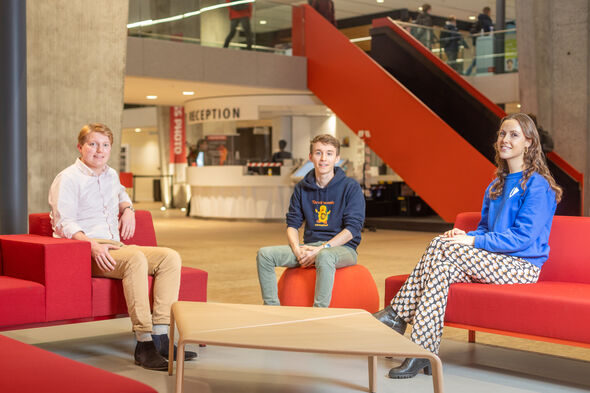
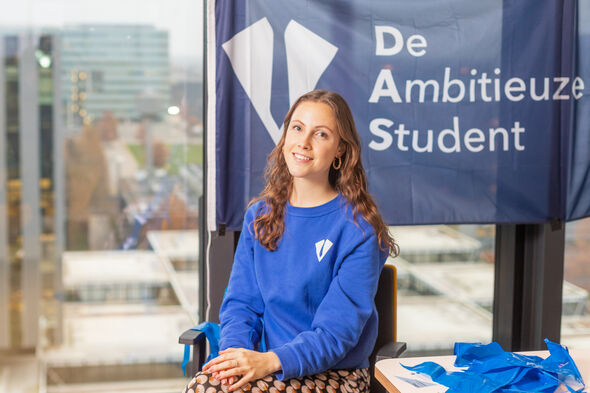
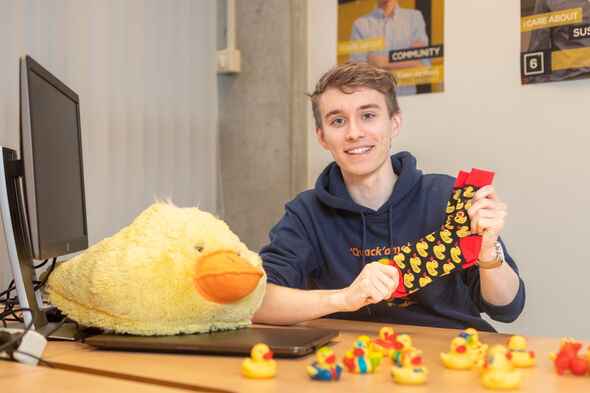
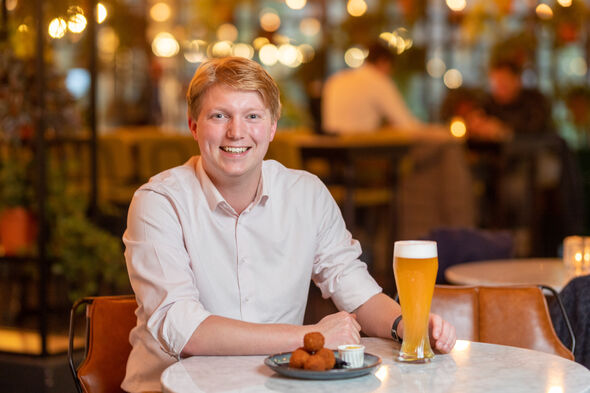
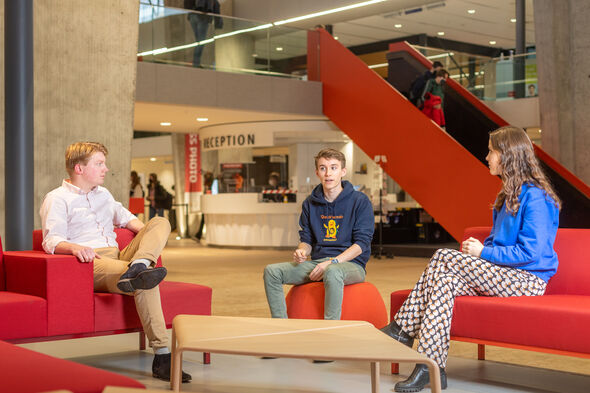
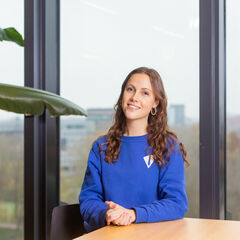
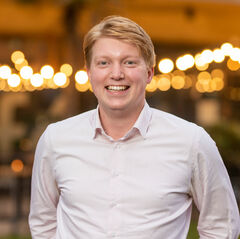
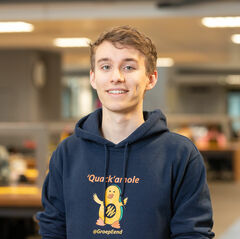
Discussion